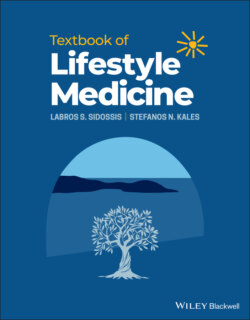Читать книгу Textbook of Lifestyle Medicine - Labros S. Sidossis - Страница 122
Take‐Home Messages
ОглавлениеReligion is an important factor in shaping people's beliefs; their lifestyle and dietary habits may also be influenced by their religious traditions and practices.
Fasting periods exist in almost all religions; they comprise a call to holiness and spirituality.
Buddhist meditation has positive effects on reducing stress and increasing mindfulness, as well as improving BP and vascular endothelial function. Numerous studies have demonstrated the role of mindfulness‐based stress reduction in T2DM showing modest improvements in body weight and glycemic control.
A short‐term engagement in yoga practice has been found to improve obesity, CVD, and T2DM risk factors among high‐risk populations.
Fasting, known as Vrat or Vratam, is fundamental to the Hindu religion; it shows the denial of the body's physical needs in favor of mental health.
In Judaism, believers consume only what is considered to be kosher, i.e., whatever has been produced in agreement with the Jewish dietary laws.
Islamic dietary laws dictate that Muslims can eat foods that purify their body and spirit from all kinds of dirt and impurities, based on what Allah commands. The most renowned fasting period of Muslims is Ramadan.
The health benefits associated with Ramadan fasting include weight loss, improvements in insulin resistance, blood glucose, BP, and lipid profile as well as the prevention of several chronic diseases.
In Christianity, fasting is sometimes paired with prayer in seeking God’s guidance. Some sects have specific dietary rituals. In the Greek Orthodox Church fasting is practiced throughout the year, about 6.5 months/year. The dietary rules of Orthodox Christianity offer a flexible lifestyle pattern with several, well‐documented health benefits.
